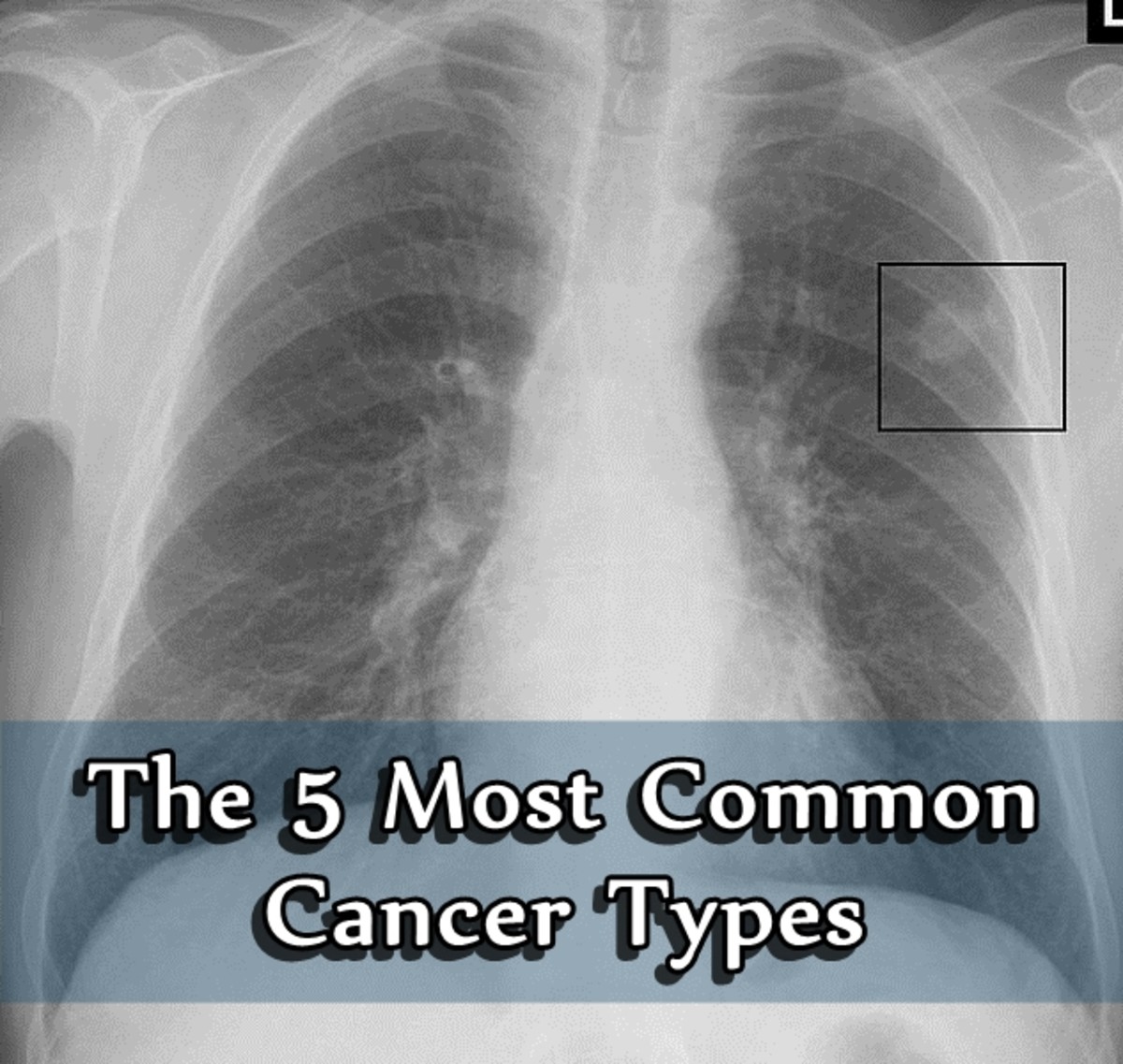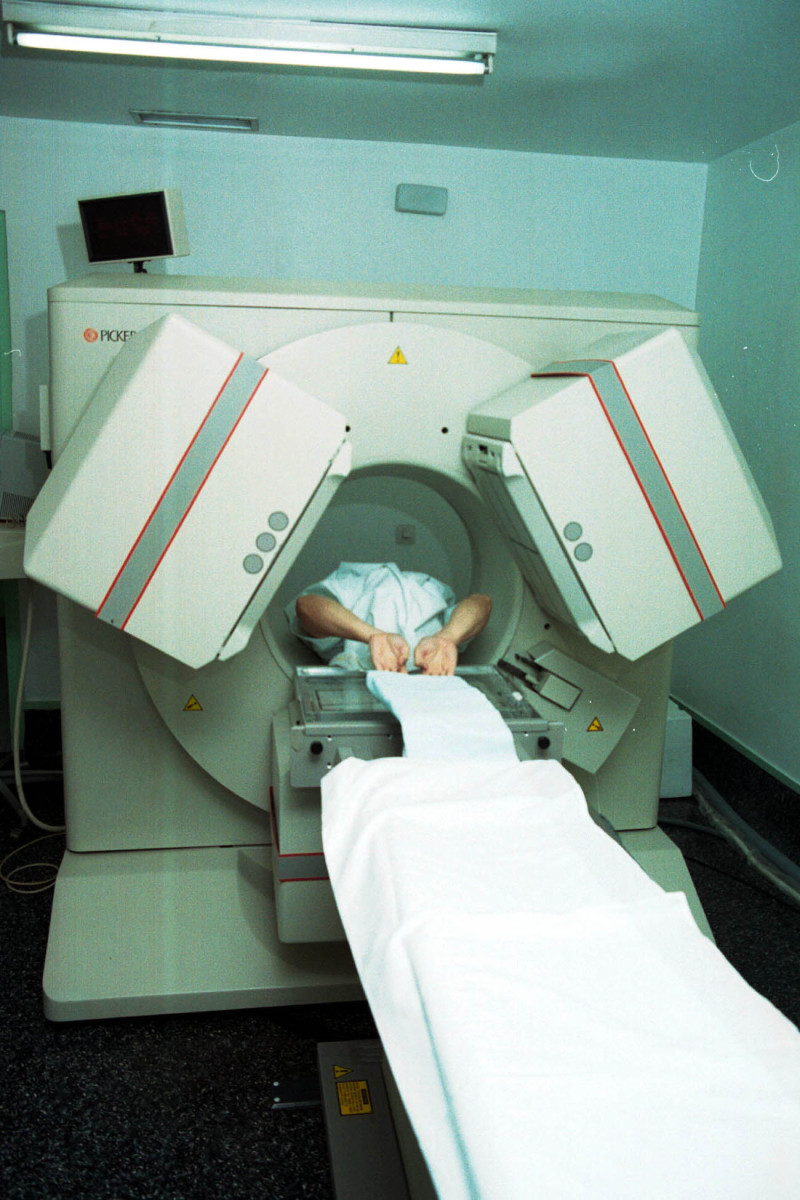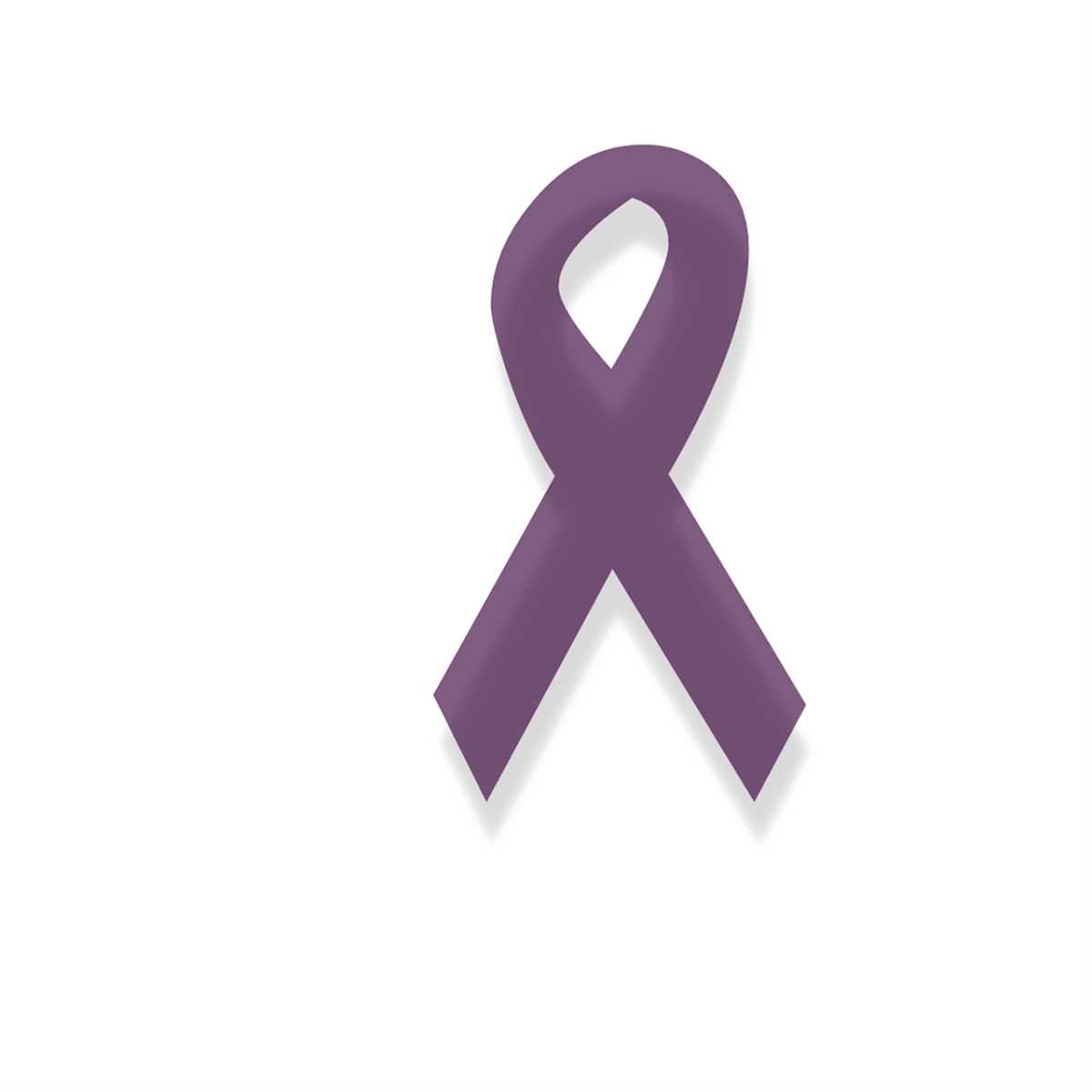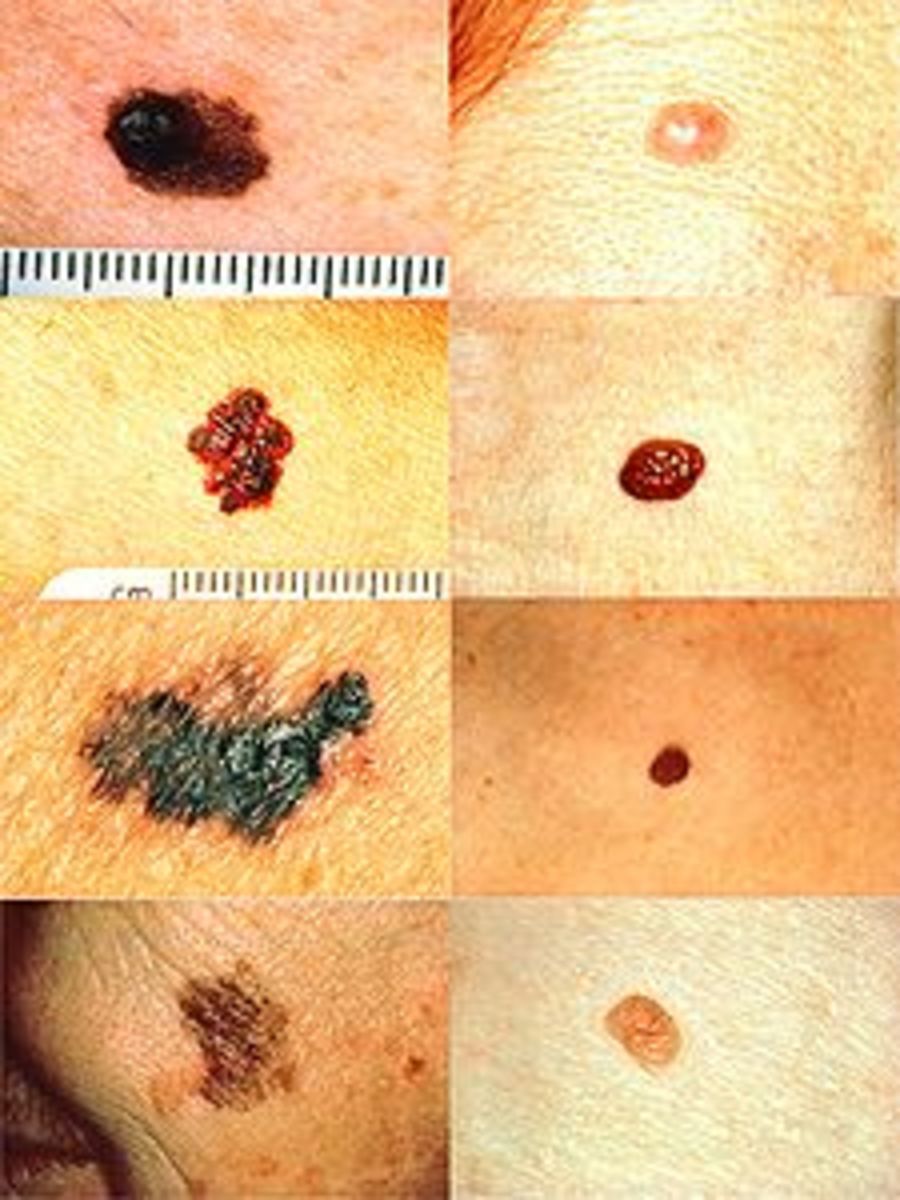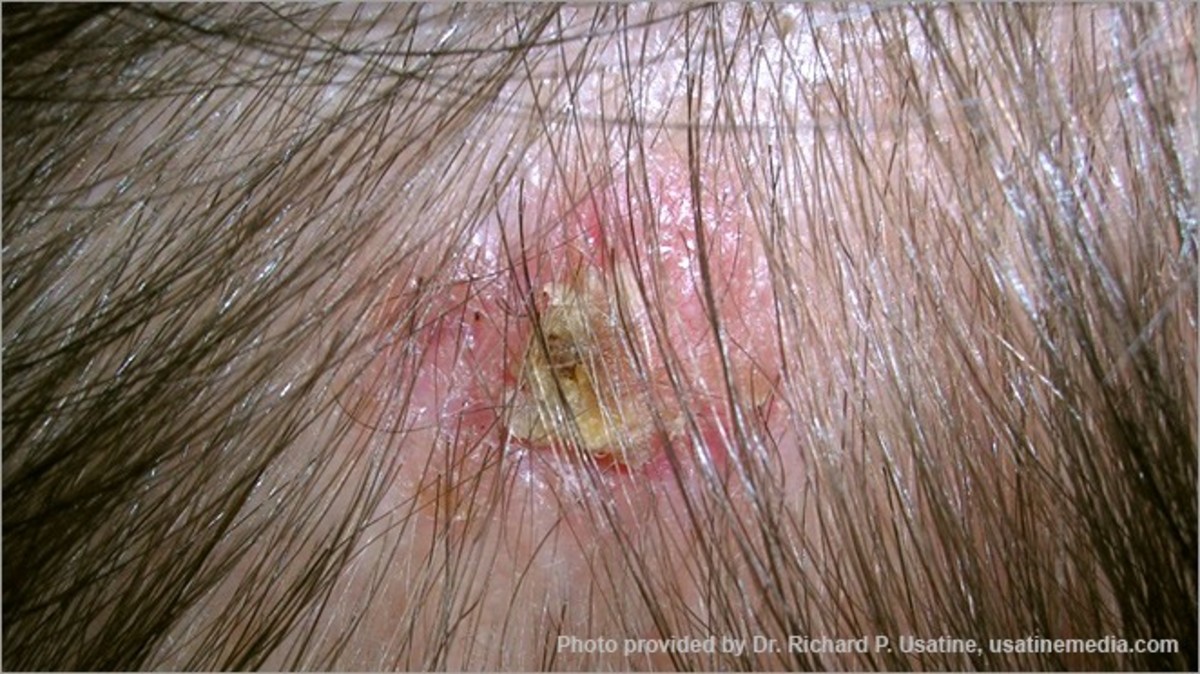Health Care Workers at Risk from Secondhand Chemotherapy
Doctors, Nurses, Pharmacists, Lab Techs and Janitors at Risk
Many people in the cancer care industry entered the profession to help others. They wanted to make life a little easier for patients battling this dreaded disease.
However, many of these employees are now confronting a grim reality. After spending so much time around chemotherapy drugs, they could be at increased risk of cancer themselves.
Most chemotherapy is highly toxic. If you dispense it, then it's virtually impossible to avoid exposure. Spills and accidents in cancer clinics are commonplace.
Because these drugs are formulated to kill rapidly dividing cells, and to become active in the human body, they are readily absorbed by the skin.
Mixing these drugs is another way workers jeopardize their health. Even with ventilators, it's virtually impossible to keep a work area totally free from these toxic chemicals.
Samples of some clinics have found chemo residue on surface areas, including the buttons in an elevator.
Pharmacists and lab techs who mix the drugs probably incur the most risk. But doctors, nurses and janitors also come into contact with these carcinogenic chemicals.
Even when a patient leaves a clinic, the drugs travel with them. They are excreted in the urine, and are present in other bodily fluids, for up to a week.
Here's A New Way of Looking at Cancer
Some Victims are Going Public
One courageous pharmacist named Sue Crump once worked at various medical centers in Seattle. During the 1980s, she recalled, she mixed toxic drugs, frequently spilling them on her hands. When she was diagnosed with pancreatic cancer in 2008, she decided to tell her story. She did this after realizing a number of her fellow workers had also gotten sick.
Soon after her diagnosis, she started hearing of other former coworkers. They'd developed cancer as well. This courageous woman then spent the rest of her life sounding the alarm about occupational exposure to chemotherapy.
Even though pharmacists and cancer center nurses now wear bio-medical hazard suits, contamination of surface areas in these settings has been widely documented.
Handling High Toxic Drugs
Just how toxic are some chemotherapy regimens? The general public has no idea that merely being in the company of a recently treated patient carries a certain risk, if strict precautions aren't taken.
Patients are advised to follow a number of guidelines, once they return home, to protect other members of their household.
After infusion, the drugs are present in bodily fluids, including the urine, feces, vomit, sweat, tears and saliva. Caregivers are at great risk of exposure. For this reason, they are advised to wear gloves and to put any soiled laundry into plastic bags. These clothes, or bed linens, are then supposed to be cleaned in the washing machine, instead of by hand.
This laundry should go through two complete cycles in the machine, and not be washed with clothing to be worn by anyone else.
Chemotherapy Drugs Carry Safety Warnings
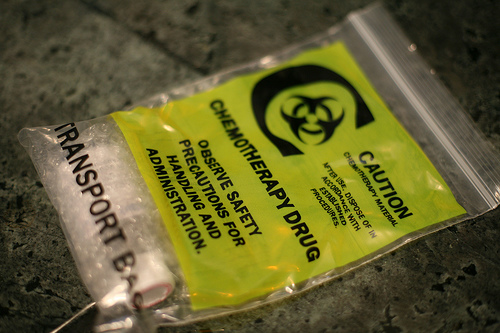
American Cancer Society Recommendations
Since a large amount of drugs pass out of the body through the urine, the American Cancer Society talks about a 48-hour window of risk. Some European cancer centers, however, believe it's as long as a week.
The ACS recommends that chemotherapy patients use a separate bathroom, if possible. Both men and women are advised to sit on the toilet while urinating, to reduce the possibility of urine landing anywhere else. They are also told to leave the toilet seat cover down while flushing, to reduce the risk of the toxic chemicals becoming airborne.
Some of the chemicals also leave the body by way of the skin. The ACS recommends patients use a paper towel after washing their hands.
Because these chemicals are in saliva as well, the ACS also advises patients not to share food or eating utensils with anyone else.
In the event of accidental contact with a patient's bodily fluids, the ACS advises immediately washing your skin with hot, soapy water, and then telling your own doctor about the incident.
A Chemotherapy Unit
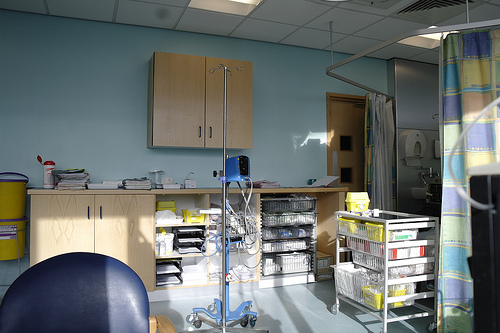
Sue Crump's Story Told by Her Daughter
Safety Procedures in Cancer Clinics in the United States
A Seattle investigative news team followed up by visiting Swedish Medical Center, where Sue Crump once worked. They found elaborate safety procedures now in place, including an advanced air flow hood over the mixing tank that will prevent harmful fumes from being blown back into a pharmacist or a technician's face. Chemo bags were also outfitted with safety devices to prevent spills.
This was all voluntary and other cancer clinics do not have to adopt these practices. That's because, currently, there are no national safety regulations that spell out how to safely handle cytotoxic drugs.
In 2004, the National Institute for Occupational Safety and Health issued a warning that working with certain chemotherapeutic agents may lead to a number of health conditions, ranging from skin rashes to cancer.
Studies on Occupational Exposures
One 2012 study released by the National Institute for Occupational Safety and Health (NIOSH) found that pregnant oncology nurses, who worked with chemotherapy, had twice as many miscarriages as other nurses.
Many forms of chemotherapy are considered cytotoxic, meaning that these drugs target and kill rapidly dividing cells. They are especially dangerous for the unborn and for small children.
Hazardous spills in cancer care clinics are routine. But the problem appears to be worse when chemo is delivered outside of a hospital setting. Another study from the University of Michigan School of nursing, released in September of 2011, polled over 1,300 oncology nurses who give these drugs to patients in their homes. It found that 17 percent of these workers suffered accidental skin or eye exposure over the course of a year.
Video Describing the Risks of Cytotoxic Drug Exposure
Chemotherapy in the Home
Most chemotherapy is dispensed in a clinic. But, sometimes, especially if a patient is very sick, the drugs may be dispensed by a home health nurse.
Unless strict precautions are taken, this can easily result in exposure to the nurse, as well as to other members of the family, as the University of Michigan Study indicated. However, for the most part, family members are in the dark about these potential dangers.
The tubing of home infusion pumps, for instance, could became disconnected and the drugs can be spilled in the house. In one clinic, residues were still found months after the area was supposedly scrubbed down.
Clinic-based chemotherapy units have hazardous waste spill kits and a strict protocol to follow when an accident occurs. Most homes don't have these kits and family members do not wear bio-hazard suits.
Even Hospitals Struggle to Stay Chemo Free
Because recently infused patients excrete chemotherapy for at least 48 hours, it's difficult to keep hospitals entirely free of this chemical residue.
One administrator of a large East Coast medical center admitted that chemotherapy residue has been found on elevator buttons and on computer keyboards in his facility.
NIOSH also released a report on chemo residue of one now closed Florida cancer clinic. This investigation was done in response to worker complaints of physical symptoms such as respiratory problems, headaches and rashes. Most surfaces in the clinic had traces of highly toxic chemotherapeutic agents, according to NIOSH.
Already, legislators in two states, Massachusetts and Rhode Island, have formed commissions to study the affects of chemotherapy on others who are inadvertently exposed, as well as the impact these drugs have on the environment.
Disclaimer
These statements have not been evaluated by the Food and Drug Administration (FDA). These products are not meant to diagnose‚ treat or cure any disease or medical condition.
Disclosure
I am a participant in the Amazon Services LLC Associates Program, an affiliate advertising program designed to provide a means for sites to earn advertising fees by advertising and linking to amazon.com.





